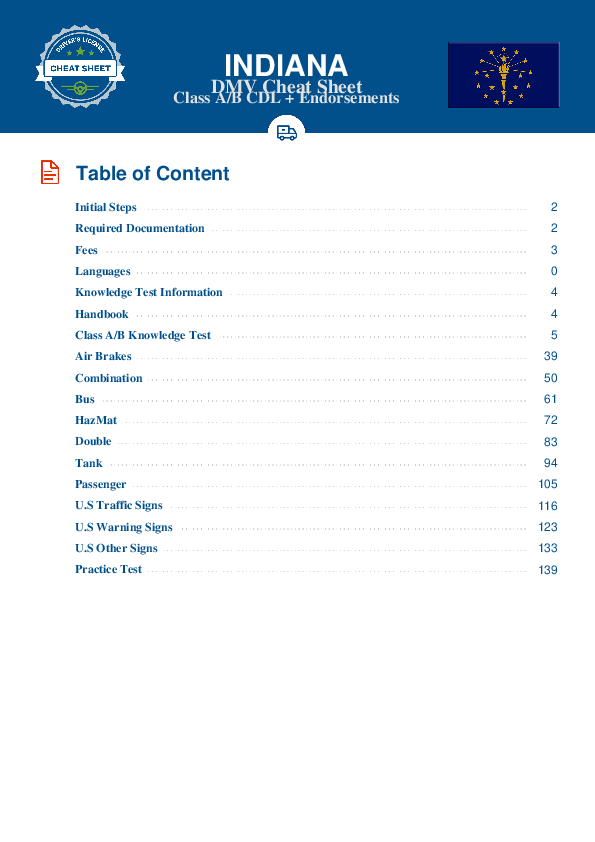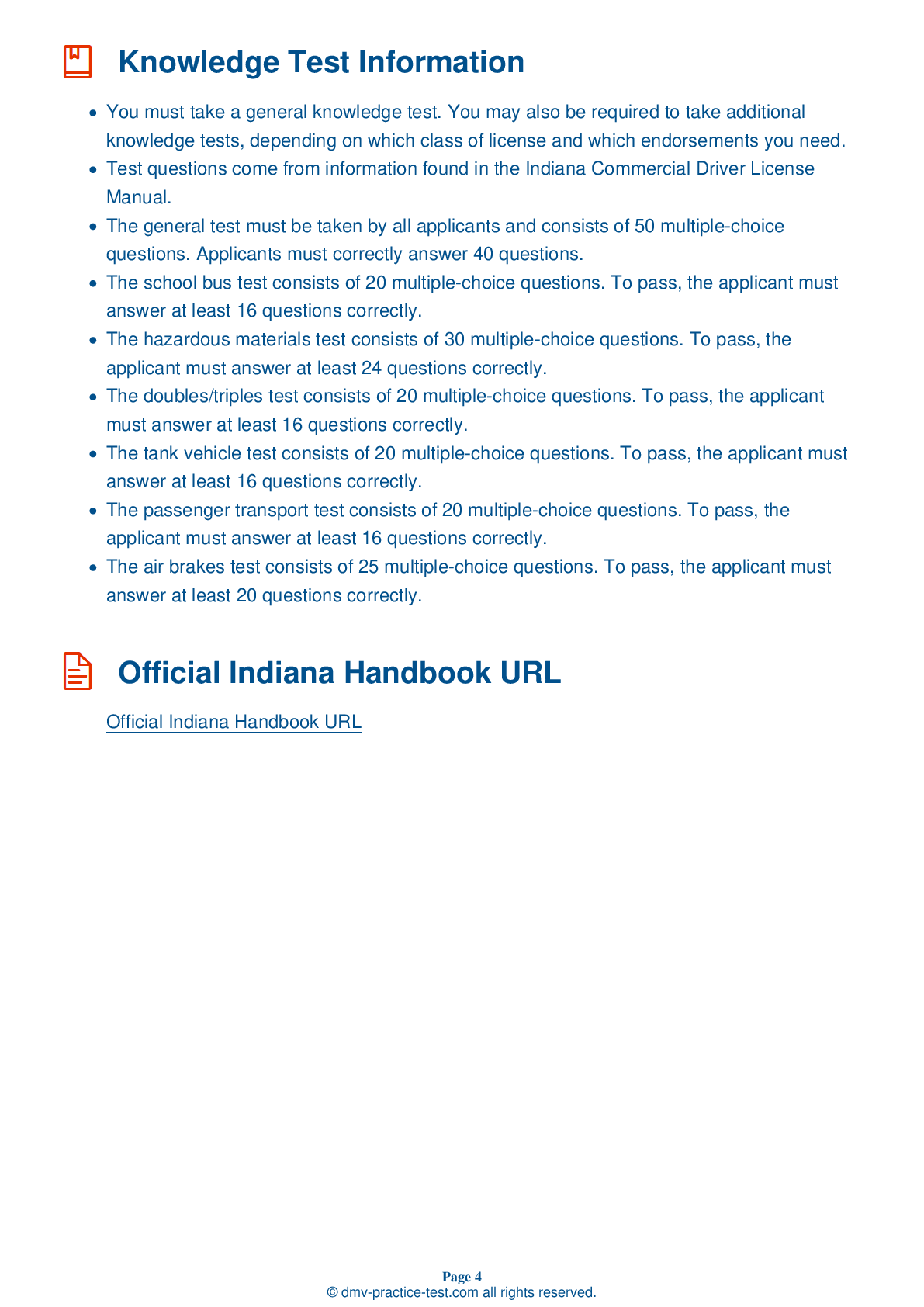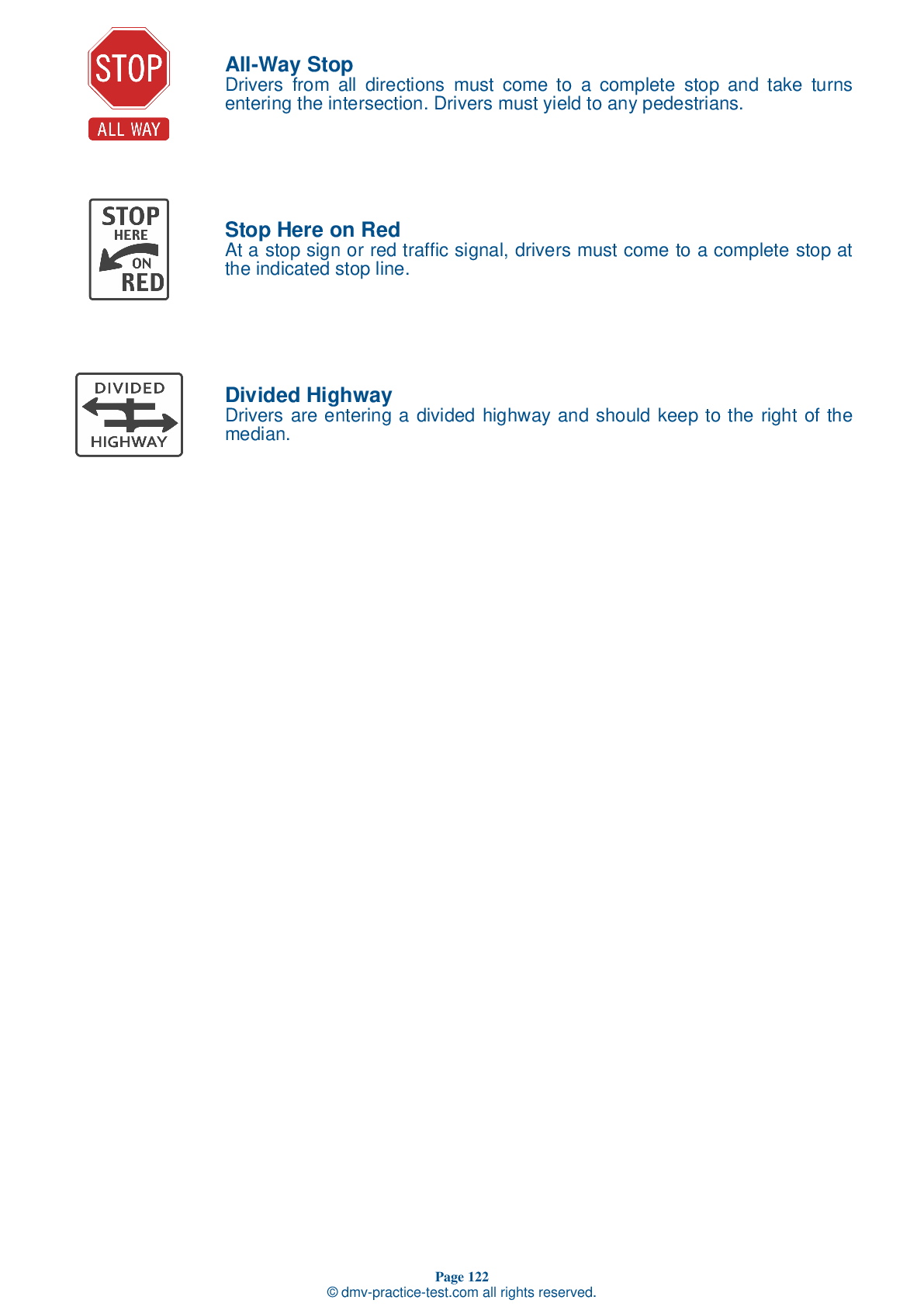Class A Driving Test | Indiana 2026 #2 Page 3 of 7
Train for FREE online with our Indiana class A license test. The official exam test consists of several obligatory parts, with all of them checking your knowledge of different blocks of road rules. If you need to obtain a IN CDL class A permit in 2026, practice as much as possible. Free sample tests published on our website will help you check and improve your knowledge and boost your grades. Please bear in mind that CDL class A requirements may vary from state to state.
15 . Livestock:
Livestock being transported as cargo can move around and shift their weight in transit, which can result in unsafe handling.
16 . When driving downhill, you should:
Before starting down a hill, you should shift into a lower gear. This will put your vehicle at a speed that you can control without having to use your brakes too much.
17 . When transporting cargo, a driver must stop within the first ____ to inspect the cargo.
The securement of cargo must be checked before beginning a trip, within the first 50 miles of a trip, and then again every three hours or 150 miles.
18 . If a tire rim is damaged, it should be:
Wheels or rims with welding repairs are not safe.
19 . When approaching an active railroad crossing:
At a railroad crossing, do not assume that you will hear an approaching train. Trains may be prohibited from sounding their horns in certain areas, or the sound of its horn may be covered by noise from your vehicle. Do not assume that warning lights or other signals will announce a train.
20 . In cold weather, an alcohol evaporator should be checked and filled:
An alcohol evaporator can help prevent ice from building up in an air brake system. In cold weather, the evaporator should be checked and refilled every day.
21 . While driving, a hand-held cell phone may:
While driving, the use of a hand-held cell phone to engage in a call is prohibited. Drivers may press no more than one button when making a voice call. Sending and reading text messages while driving is both unsafe and illegal.
See the exact questions that will be on the 2026 Indiana DMV exam.
99.2% of people who use the cheat sheet pass the FIRST TIME
Lillian MCcranie explains how our CDL study guide was helpful in passing the exam and recommends it to everyone.
Cameron tells us how he purchased the CDL exam, and found it to be a useful tool which helped him pass the exam and find a job.



